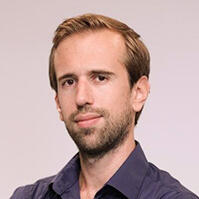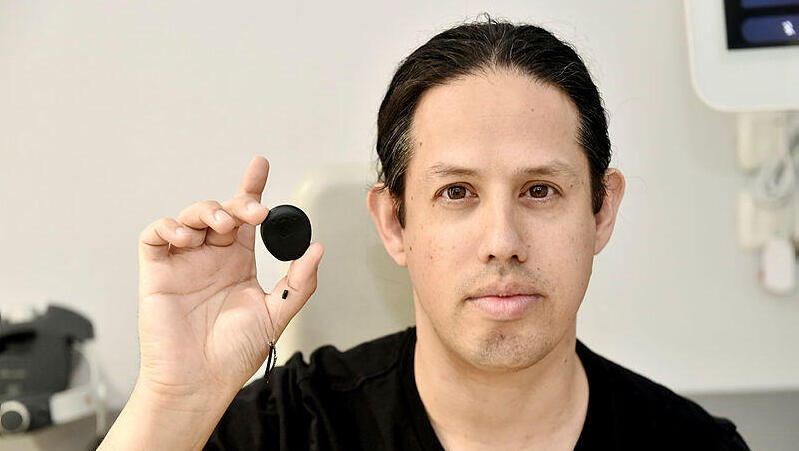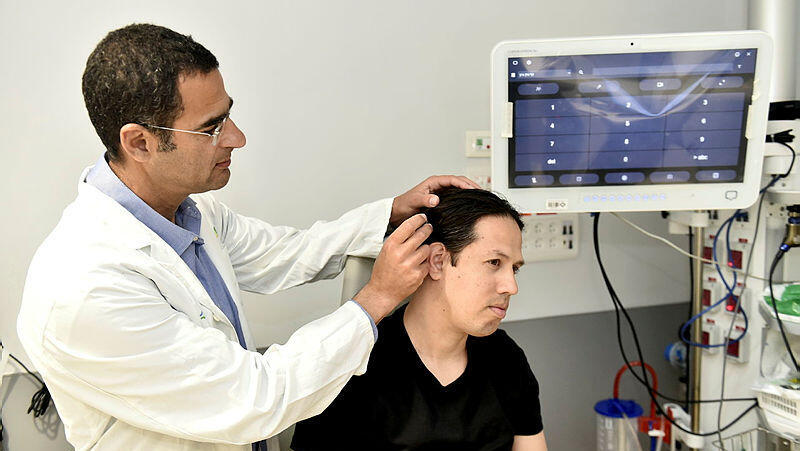Udi Tzitiat, a 40-year-old sports photographer, was born with normal hearing but became deaf at the age of two. Thanks to powerful hearing aids, he managed to hear and build a successful career. About a year and a half ago, his condition worsened, leading to complete hearing loss and severe tinnitus that dramatically affected his life and work.
He fell into a deep depression, staying home and gaining weight. Shortly before the war, Tzitiat underwent a cochlear implant surgery at the Rabin Medical Center, which restored his hearing. He returned to work, thriving once again.
Tzitiat was the only one in his family, including his parents and sister, to suffer from hearing loss. He explains that a virus at the age of two ruptured his eardrum and caused irreversible nerve damage. Since then, he has relied on hearing aids to communicate. "From childhood, I remember my parents constantly pushing me and never losing faith in me. They made sure I had all the right tools to succeed. From kindergarten through the army, I was always in mainstream environments."
Even in high school, Tzitiat loved photography, and he managed to turn his passion into a profession. "My biggest achievement is photographing international events like the Final Four with Maccabi Tel Aviv in Milan, Madrid, and Barcelona, and the Israel national team games abroad. These trips are always special to me."
In December 2021, Tzitiat's life was turned upside down. On his way to photograph a basketball game, he experienced a sudden hearing loss. The next day, he went to the emergency room and discovered that the hearing aids he had relied on for decades no longer helped. After hearing tests and consultations with four different doctors, he met with Professor Ohad Hilly, head of the Ear Surgery and Neurotology Unit at Rabin Medical Center, who recommended a cochlear implant surgery. "I was panicked about the surgery. I always believed I would return to hearing with a hearing aid or that a new, stronger model would come along," Tzitiat recalls.
the tinnitus was relentless, affecting his sleep and basic daily activities
While he hesitated, his condition deteriorated further, and he began suffering from tinnitus. He tried to work, but his colleagues had to throw a bottle in his direction or touch him to get his attention at the right moment to capture important shots. Inevitably, mistakes crept into his work, and he missed photographing a goal in a crucial match.
By September 2022, the tinnitus was relentless, affecting his sleep and basic daily activities. He fell into depression, gained 19 kilograms due to emotional eating, and also suffered from vertigo. "I would get out of bed, and the whole room would spin. Being stuck at home while my friends worked and traveled didn't help me emotionally or mentally." Fortunately, his family and close friends supported him through this difficult time. This was a turning point, and Tzitiat realized he had no choice but to undergo the procedure he feared.
Professor Ohad Hilly has been working with cochlear implants for nine years and has known Tzitiat for two. He describes Tzitiat as a special person who invites others to join his journey of treatment and recovery. "He radiates a lot of positivity and optimism about the process, which is very important to him." Despite his lingering fears, Tzitiat decided to go ahead with the cochlear implant. Professor Hilly understood his concerns, saying, "It's a long process, and the results are not immediate. In Udi's case, he is an excellent example of someone who has derived significant benefit from the implant."
Professor Hilly explains that hearing loss exists on a spectrum of severity. When hearing aids are suitable, they are usually the preferred treatment. However, a cochlear implant is intended for those for whom hearing aids do not provide adequate solutions.
The implant consists of an external device and an internal component. The procedure itself is not new and has been performed in Israel for many years. "Hearing aids amplify sounds to overcome hearing loss, while a cochlear implant replaces the ear's hearing function by directly stimulating the auditory nerves, which carry the electrical stimulus to the brain and create a neural response." Hundreds of these surgeries are performed annually, mainly on infants born deaf and adults who have lost their hearing. Despite the relatively high success rates of the surgery, many still fear it. "We need to spread the word and alleviate these fears," says Professor Hilly.
In June last year, Tzitiat underwent a four-and-a-half-hour cochlear implant surgery under general anesthesia. When he awoke, the tinnitus had completely stopped. A month later, he was connected to the cochlear implant processor and has since been working closely with a speech therapist and social workers at Schneider Hospital to continue improving his hearing and speech. "My hearing has returned, and in recent weeks, I’ve been hearing better than I ever have." Now, he can listen to voice messages, hear birds chirping, notice knocks on the door, and understand those around him better.
Tzitiat feels he has been given a new lease on life
Entering his fifth decade, Tzitiat feels he has been given a new lease on life. He is now setting small goals for himself. "I have a friend whose dream is to buy an apartment. My dream is to regain the independence I had before my illness, lose weight, cope with the attention and concentration issues I’ve developed, and return to driving."
So far, he has already lost 10 kilograms and is determined to continue. Udi feels a mission to encourage people with hearing impairments to undergo the surgery. He has returned to work and photography, including shooting for Maccabi Tel Aviv basketball. In recent months, he has also accompanied the national team on their overseas campaign as their official photographer. "It was a great honor for me to photograph the national team and all the events with the Jewish community and evacuees from the south during the war. I felt a sense of mission and representing the country in the best possible way."
Professor Hilly says that Tzitiat sent him a message on his way back to his first game , which moved him deeply. "I read his message and was truly touched that the crisis of stopping work, staying home, and feeling down is behind him. Thanks to the surgery, he can hear and has returned to a productive, fulfilling life."




